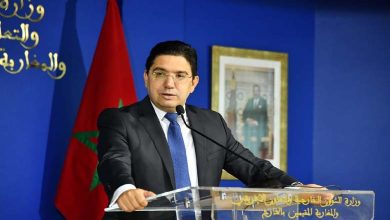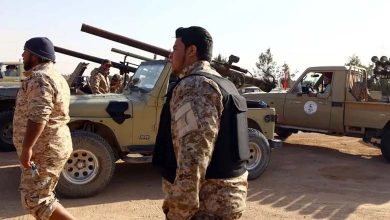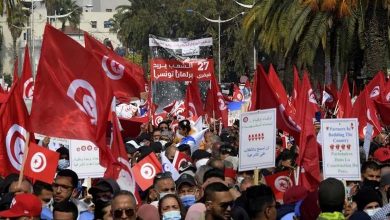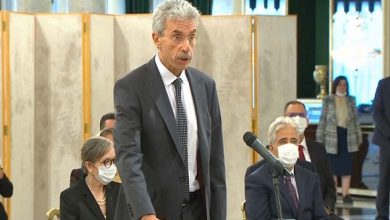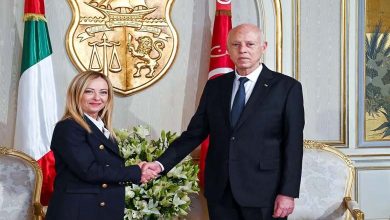Kais Saied sends messages to Tunisia’s Muslim Brotherhood
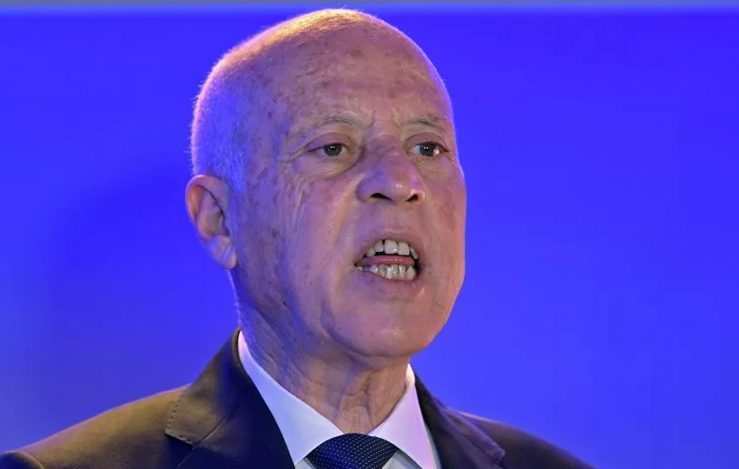
The Tunisian presidency has sent messages to both Tunisians and the Muslim Brotherhood, dampening the hopes of the Tunisian branch of the Islamist-leaning Ennahdha for a return to politics through the economic crisis.
The Tunisian president said in a statement published on the official page of the presidency that it is no longer secret that those behind the continuation of the phenomenon of the loss of a number of foodstuffs seek in every way to inflame the social situation they can benefit politically.
This came during a meeting between Tunisian President Kais Saied on Friday at the Carthage Palace between Tunisian Prime Minister Najla Bouden, Minister of Trade and Export Development Kulthum Ben Ragab, and Director General of the Diwan Najat Al Jawadi.
The meeting discussed the causes of the loss of a number of foodstuffs, or its scarcity, noting that this phenomenon, which he described as “unnatural,” was not known in Tunisia even when it witnessed major economic crises in the past decades, according to the statement of the Tunisian presidency.
The Tunisian president said that the Tunisian people no longer conceals the reasons behind the loss of a number of food items, and demands that all those who commit crimes against them and those who seek to starve and abuse them be held accountable, in reference to Ennahdha, which previously accused it of being behind the social crises in the country, especially the loss of some basic foodstuffs.
The Tunisian president stressed the need for all concerned authorities in the country to assume their responsibilities and to create a strategic stock to thwart desperate attempts to provoke crises.
The Brotherhood in Tunisia tries to provoke occasional crises in the hope of striking the relationship between the presidency and the Tunisians who demanded that Ennahdha be removed from the political scene and held accountable for the past 10 years during which it seized power, the resulting spread of terrorism, political assassinations, and the division of society, as well as the manifestations of corruption and poverty.
Large stores and small traders complain about a shortage of milk, coffee, sugar and cooking oil. Supermarkets have identified some basic items, including dough, with just two cans.
“Since the 1960s, nothing has been cut off… Today basic materials are cut off, and this is an effective action,” the Tunisian president said in recent remarks.
He continued, “There are those who are trying to aggravate the situation, and I go out at night to visit, not in front of the theater [the municipal theater, where opposition usually gathers], so that I do not stand on the stage. This is the opposite of what a number of actors who have had their roles supervised from behind the scenes are doing.”
Tunisia is experiencing a severe economic crisis, exacerbated by the repercussions of the COVID-19 pandemic and the high cost of importing energy and basic materials following the Russia-Ukraine crisis.
The growth of consumer price inflation in Tunisia accelerated to 10.1% year-on-year during December 2022, up from 9.8% in the previous November, according to data of the National Institute of Statistics (government).




